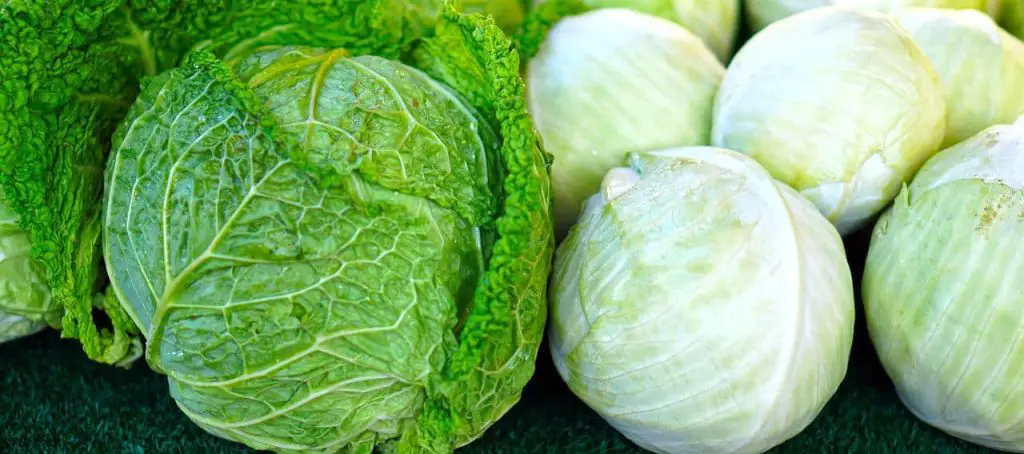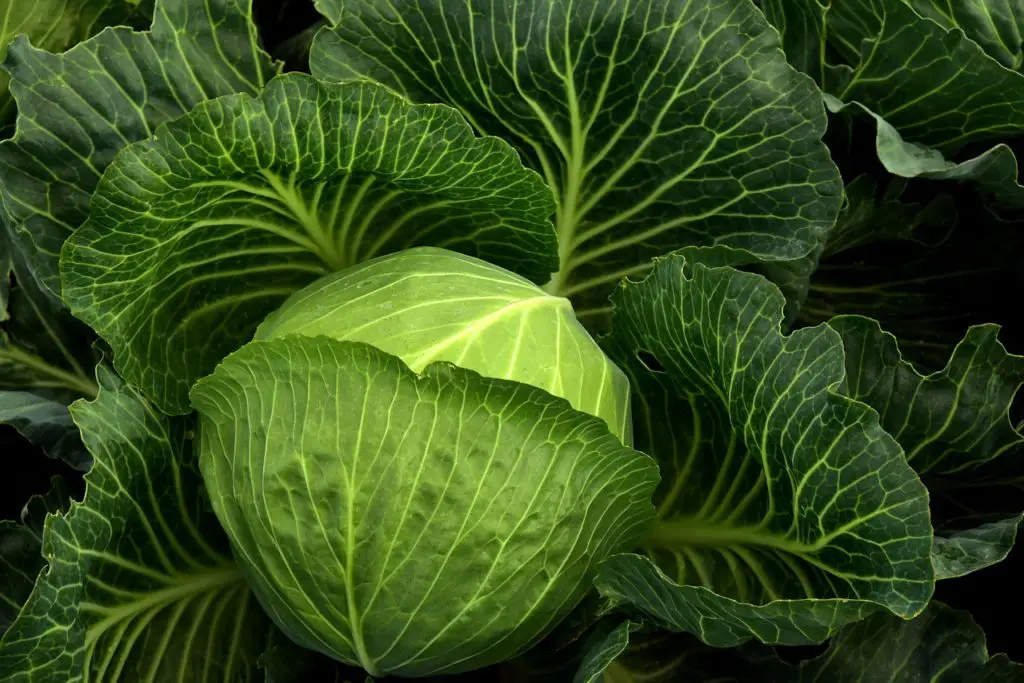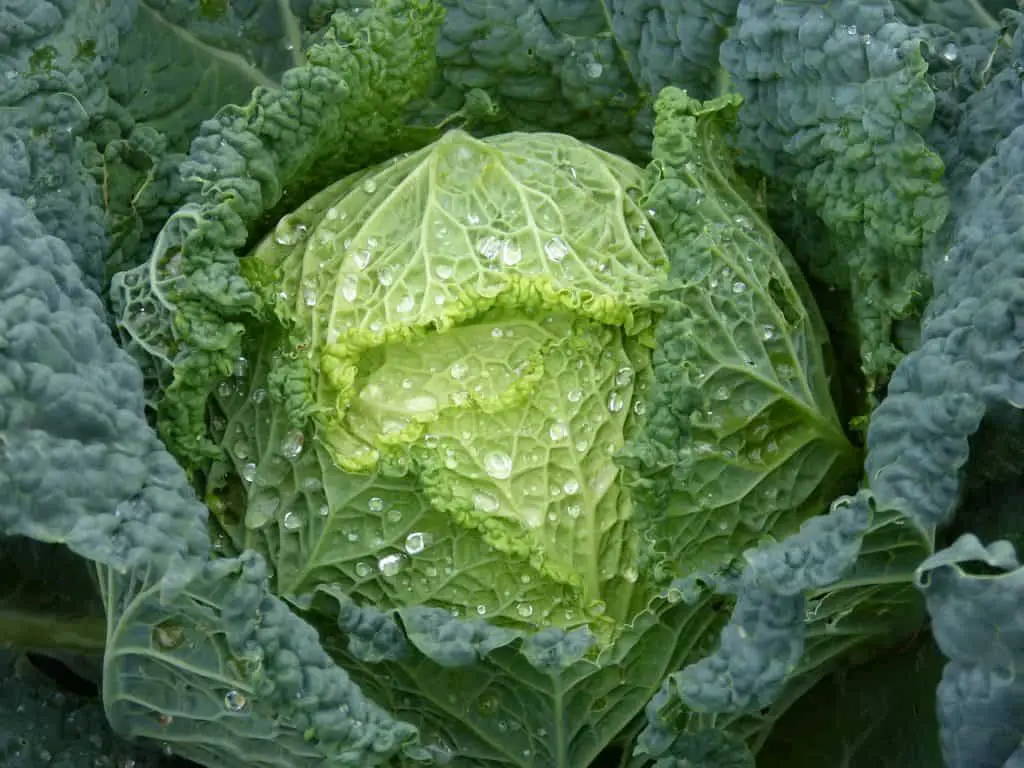People love cabbage for its unique flavor and nutrient density. Dogs also like the taste of this leafy cruciferous vegetable. Can dogs eat cabbage? Yes, cabbage is safe for dogs to eat in moderation. As with humans, too much of this nutritious vegetable could result in unwanted gas.
There are more then 400 varieties of cabbage, including green cabbage, red cabbage, and Savoy cabbage. Cabbage is one vegetable that likes cool growing conditions, although it can be found in markets for most of the year. This is one reason that it makes a good vegetable to share with your dog.
In this article, Can Dogs Eat Cabbage, you will learn the incredible benefits of consuming cabbage, how to serve this vegetable to your dog, and any potential concerns you should be aware of before giving your dog cabbage.
- Nutritional Value of Cabbage for Canines
- Best Way to Serve Cabbage
- How Much Can My Dog Eat?
- Potential Concerns for Serving Cabbage to Dogs
This unique vegetable contains sulfur which is needed for keratin production. Keratin supports healthy skin and coats in canines. Cabbage benefits the dog’s overall health by providing essential nutrients needed for optimal health.
Dogs thrive off a diet consisting of at least 80% meat and 20% organs and plants. Vegetables are a necessary part of feeling good. Another bonus is cabbage is low in calories and fat, plus it’s loaded with beneficial fiber.
Related Articles:
Can dogs eat cabbage? Nutritional Value of Cabbage for Canines
Cabbage is considered one of the world’s healthiest foods! Dogs can benefit from this hearty vegetable in many ways.
- High concentration of Vitamin C: lowers inflammation in the body, builds immunity, antioxidant properties.
- Vitamin K: promotes blood clotting
- Vitamin B6: is a coenzyme that is needed for the metabolism of amino acids. It promotes overall well-being for the dog.
- Thiamine (Vitamin B1): necessary for proper function of the brain and optimal cognitive functions.
- Dietary Fiber: healthy digestion, promotes regular elimination and healthy stools
- Manganese: is needed for healthy maintenance of bones and cartilage in joints.
- Potassium: an electrolyte vital for good health. It is necessary for properly functioning heart, nerves, and muscles.
- Contains essential minerals such as copper, iron, magnesium, and phosphorus.
- Related Articles:
Can dogs eat cabbage? Additional Health Benefits of Eating Cabbage
Cabbage is in the cruciferous family meaning it contains healthy sulfur. It also has antioxidants that when consumed benefit inflammatory ailments found in dogs and boost brain health.
Sulfur-Containing Food. The most unique and beneficial quality of eating cabbage is due to a sulfur containing compound called, sulforaphane. This compound has shown to inhibit the progression of cancer cells. Purple cabbage contains a powerful antioxidant, called anthocyanins, that is known to slow the formation of cancer cells.
Reduces Inflammation. Cabbage contains high concentrations of vitamin C which lowers inflammation in the body. It also contains an amino acid called glutamine which is a strong anti-inflammatory agent known to reduce the pain and swelling associated with arthritis.
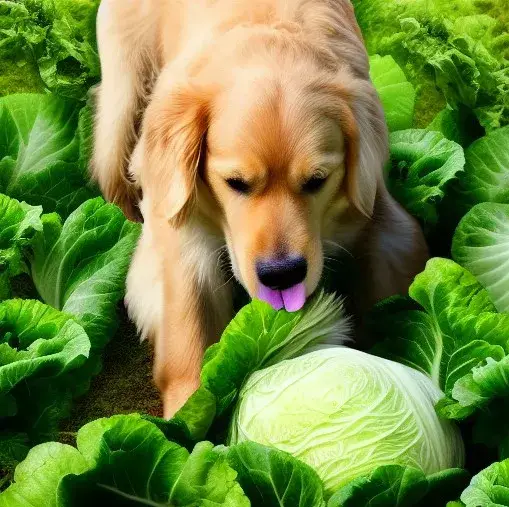
Related Articles:
- The Best Canned Dog Food for Dogs with Sensitive Stomachs
- A Review of the Top 5 Best Dog Bones For Aggressive Chewers
- A Review Of The Top 5 Best Bone Broths for Dogs
Improves Brain Health. Purple cabbage is the brain food vegetable. It contains an antioxidant called anthocyanin which boosts mental function and concentration. Another benefit of this antioxidant is it reduces the plaque on the brain.
Can Dogs Eat Cabbage? – Best Way to Serve Cabbage
Can dogs eat cabbage? Dogs can benefit from eating both raw and cooked cabbage. When purchasing cabbage at the store or farm market, look for heads without blemishes and bruises.
Cabbage should have a large, dense head and be appropriately heavy for its size. The freshest cabbage will be available between April and November in United States. The leaves on the outside will appear brightly colored and crisp.
It is best not to purchase cabbage that has been cut in half or shredded, as it will have lost much of its vitamin C content. Cabbage can be stored in an airtight container in the refrigerator for one to two weeks. Always wash your cabbage before preparing it.
Raw Cabbage. Chop the cabbage by hand or finely shred it in a food processor. Use as a food topper or add it to food stuffed toys. One advantage of serving raw cabbage is no vitamins and minerals were lost in the cooking process. However, it can be harder for a dog to absorb all the nutrients.
Related Articles:
Steamed Cabbage. Steaming is an indirect way of cooking your cabbage while keeping most of the nutrients and antioxidants. Fill the bottom of a cooking pot with water, next place the cabbage into a steaming basket and set in the pot. On low heat lightly steam shredded cabbage approximately 4 minutes. Cabbage cut into wedges might need to be steamed between 8-10 minutes. Cool before serving it to your dog.
Roasting Cabbage. Purple cabbage tends to work better for roasting as it does not contain as much water, although green cabbage can be roasted as well. Preheat your oven to 425°. Slice the cabbage into thin wedges and place on a baking sheet. Bake for 18-20 minutes. Cool and serve to your dog.
In order to make cabbage safe for your dog to consume, hold off on the oils and added seasonings. Dogs like the natural flavor of cabbage and will consider it a treat. Steaming and roasting cabbage makes it easier for a dog to digest and it removes the compound that tends to give dogs (and humans) unwanted gas.
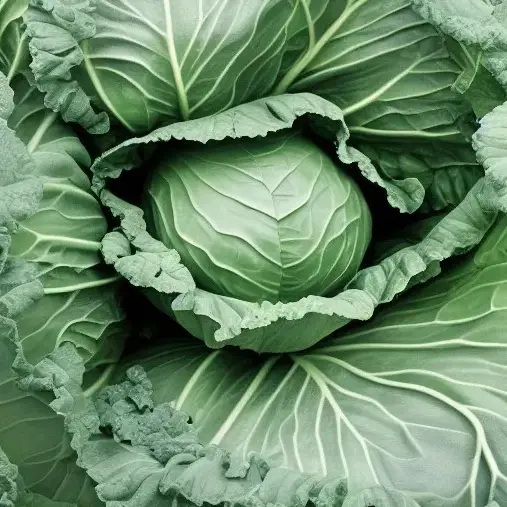
Related Articles:
Can dogs eat cabbage? How Much Can My Dog Eat?
When adding vegetables to your dog’s diet keep them to 10% of your dog’s daily food intake. Can dogs eat cabbage? Yes, but in safe amounts. Small dogs can have a small portion of cabbage and larger dogs can have a bit more.
When introducing a new food to your dog, give them a small amount and monitor them. Cabbage is a nutritious vegetable; however, it should not be part of your dog’s daily diet. Once every week or so should be fine for your dog.
If your dog has digestive upset or other adverse effects, monitor your dog and refrain from serving them cabbage.
Can dogs eat cabbage? Potential Concerns for Serving Cabbage to Dogs
Cabbage is a nutrient dense food that contributes to the health of humans and canines. Can dogs eat cabbage? Some dogs love cabbage as a food topper however, not all dogs are able to eat cabbage.
Loose stools. If your dog experiences loose stools after eating cabbage, their digestive system is unable to digest it properly.
Thiocyanate. This compound is present in raw cabbage. When your dog consistently overeats cabbage, over time it could affect their thyroid gland and result in hypothyroidism. If you are concerned, always feed them small quantities once a week. Steaming or roasting cabbage deactivates this compound.
Allergic reaction. In rare cases, your dog could have what looks like an allergic reaction to cabbage or the compound found in cabbage. If your dog experiences fever, rashes, diarrhea, vomiting, or lethargy contact your professional veterinarian.
Overall, cabbage is well liked and easily digested by most dogs. It is always advised to monitor your dog the first time you give them a piece of cabbage.
Related Articles:
- A Review of the 5 Best Slow Feed Dog Bowls
- A Review of the 5 Best High Fiber Dog Foods For Anal Gland Problems
- How to Get a Dog To Take a Pill
Can dogs eat cabbage?
Yes, this nutritious leafy vegetable is safe for most dogs to eat. The nutrients found in cabbage can boost your dog’s immunity, prevent disease, reduce inflammation, and improve cognitive health.
Fresh vegetables can complement a dog’s diet by adding it to their kibble or stuffed in a food toy. Small amounts of cabbage will benefit your dog without any adverse effects.
One alternative vegetable to serving cabbage is lettuce. It is a leafy green that does not contain the same compounds as cabbage. Canines can enjoy the same health benefits of consuming vegetables as their human.
Related Articles:
Ultimate Guide: How To Take Care Of A Senior Dog
Please read our Legal Disclaimer

